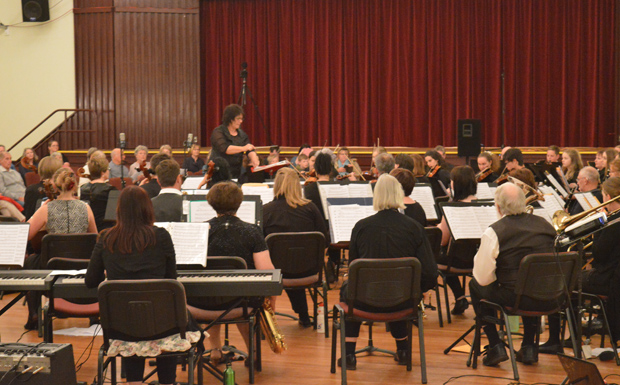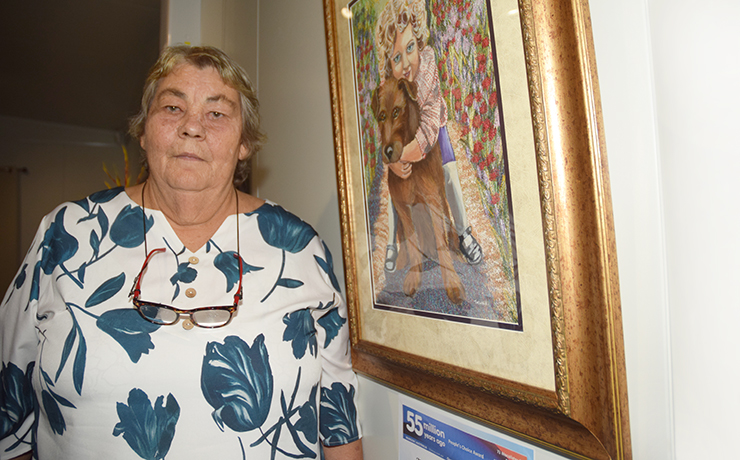 September 16, 2020
September 16, 2020
by Dafyd Martindale
In May 2019 Chris Hughes – one of the original founders of Facebook – wrote an opinion piece in the New York Times calling on the US Government to step in and break up the tech giant.
It’s a stirring article that discusses not only all the reasons Facebook should be broken up to end its monopoly of social media, but also the proper role of government in regulating a free market.
This article is still online today and I recommend it to anyone who struggles to understand what government really is and why it exists.
I would particularly recommend it to some of our South Burnett councillors, who perhaps don’t understand what a council is or what their job is really all about.
At September’s meeting – when Councillors spent hours debating the obscene 150 per cent price hike they inflicted on our region’s standpipe users (some of the most vulnerable people in our community) – several Councillors stated repeatedly they believed Council was a business and had to run sustainably.
That’s a very serious error, and here’s why I believe this view is wrong:
There are three key actors in the Australian economy.
On the one hand, there are businesses which generate the goods and services we all consume. On the other, there’s us, the ordinary consumers who buy those goods and services to help us live our lives. And in between, there is government which exists to supply us with the basic services we all need and to stop businesses going to war against the consumers that support them.
In general, businesses operating in a free and competitive market do lots of good things.
They develop new processes that help create newer, better products; and they find ways to innovate that deliver services we never knew we needed until they were brought into existence and changed our lives forever, and for the better.
But the flip side of all business is that it’s a competitive market that always seeks advantage. So over time, nearly all businesses in any market will cannibalise their competitors.
The end result of this – sooner or later – is that in any market that starts out with hundreds (or even thousands) of competitors, sooner or later there will be just a handful of mega-businesses who will then abuse their market power to screw consumers to the wall.
Hence the third player in our economy: government.
Government exists, basically, to do all the vital and necessary tasks that society needs and at higher levels – as Chris Hughes points out – to step into free markets and use legislation and/or regulation to stop them spinning out of control.
Government funds itself through taxes, fees and charges – and it’s certainly not a perfect system.
There are good cases to make that government at all levels is inherently wasteful, inefficient and uncreative (and if you put this to most people who work in government, they’ll probably agree this is perfectly true).
But this is the price we pay to have an honest broker working for us and in the broader interests of society as a whole.
In the more than 120 years that have passed since Federation, our three-tiered Australian system of government has worked for most of us pretty well.
Thanks to generations of governments, we have outlawed abominations such as slavery, torture and the death penalty. We have tackled starvation, ensured compulsory voting so every Australian adult gets a say, and chipped away (and continue to chip away) at the thousand other injustices that still bedevil us and a lot of other nations around the world, too.
So when you hear any councillor say that Council is a business and has to be sustainable, recognise they are misinformed.
Councils are obliged to practise good management. But they are not obliged to make a profit from what they do and – in some areas – they are legally only allowed to recover their out-of-pocket outlays.
So when the State Government mandates that councils be sustainable, it does not mean it expects them to make a profit. It simply means they should operate in a way that closely balances their outgoings against their income – not that they should return a surplus each year, nor that they run deeply into the red.
Life being as fickle and unpredictable as it is, Councils are simply asked to work in a narrow band that moves between small surpluses and small deficits from one year to the next, setting their sails as best they can against winds that can blow gentle or gale-force, depending on the economy, the climate and a million other factors beyond any council’s control.
This “wiggle room” between black and red ink exists to allow councils to respond to things such as drought, floods, bushfires, the pandemic and the many other ills that have befallen the nation over the past decade with a level of kindness, care and genuine compassion that is the hallmark of the best Australian governments at any time.
It’s not about the money, Councillors. And it’s most certainly not about running a profitable “business”.
It’s about caring for the communities that elected you and looking after them as best you can when things take a turn for the worse.
Most especially, it’s about looking after those people who are suffering the most – the vulnerable, the poor, and the marginalised.
So I hope our Councillors who think they work for a business read Chris Hughes’ article.
The next election is only 42 months away, and we deserve better than some Councillors have been delivering lately.
























That is so true, it was so disappointing to see and hear the four councillors who had such a blatant disregard for members of our community who are struggling. To see Councillor Duff beg them to reconsider their decision, see the Mayor plead for some compassion and see what is an obvious powerplay by these four.
For them to be giving lectures on how bad the feedback is on the standpipe issue, their statements of having returned calls and messages. I can show statements from many of their voters who would dispute this, but instead of taking notice of this feedback they totally ignored it.
Brilliant editorial!
Well said. The gang of four needs to go.
As always I enjoy your commentary. I am one of those that regularly comments that Council should be ‘run like a business’, but my definition of this is that you want overheads low and the ability to spend ‘profits’ back into the community (ie a business that ‘breaks even’ by way of providing the most it can for its community).
They are in business but there is much to be said about a group that cannot recognise who their decisions slice at the throat. The narrow bands grow ever perilous.
Well researched and well said Dafyd
Well said. I agree absolutely. Thank you, Dafyd.